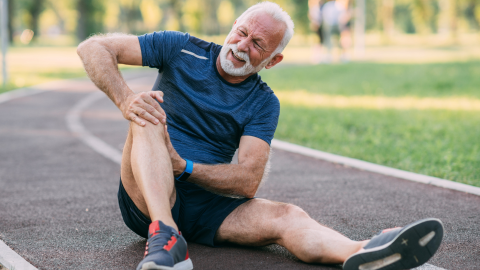Knee Osteoarthritis Myths & Best Practice in Physiotherapy

Knee Osteoarthritis Myths & Best Practice in Physiotherapy
This course includes
Overview
Our understanding of the etiology and management of knee osteoarthritis is quickly evolving. This online physiotherapy course will debunk several knee osteoarthritis myths, provide clinicians with a better understanding of the complex etiology of knee osteoarthritis, and provide an update on the evidence-based recommendations from several international guidelines on the conservative management of knee osteoarthritis.
A second course by Anthony Teoli is available on Embodia: Knee Osteoarthritis Management – An Evidence-Based Update for Physiotherapists. A brief outline of what's included in each course and the differences is outlined below.
Knee Osteoarthritis Myths & Best Practice in Physiotherapy:
- Includes 7 myths that Knee Osteoarthritis Management – An Evidence-Based Update for Physiotherapists does not include
- Info on clinical diagnosis of OA
- More info on evidence supporting exercise for management
- Quick explanation about the benefit of weight loss
Knee Osteoarthritis Management – An Evidence-Based Update for Physiotherapists
- No info on clinical assessment of OA
- Exercise recommendation slide (dosage)
- More in-depth recommendations regarding weight loss
- Discusses adjunct Tx and surgical management (Knee Osteoarthritis Myths & Best Practice in Physiotherapy does not)
Relevance to Physiotherapy Practice
There is a strong push towards evidence-based practice in physiotherapy. A number of international guidelines (OARSI, EULAR, NICE, and ACR) providing evidence-based recommendations on the conservative management of knee osteoarthritis are currently available to clinicians. However, current research indicates that clinical practice does not reflect these recommendations.
Evidence-based guidelines have the potential to improve the quality of care provided by clinicians by promoting the use of effective interventions and discouraging unnecessary and ineffective interventions. Consequently, there is a need for better dissemination of international guideline recommendations for the conservative management of knee osteoarthritis in order to ensure optimum guideline adherence.
Learning Objectives
In this online course, participants will:
- Gain a better understanding of the complex etiology of knee osteoarthritis, and identify important risk factors contributing to disease initiation and progression.
- Understand and integrate current recommendations from international guidelines regarding best practice in the conservative management of knee osteoarthritis.
Audience
This online course is for all rehabilitation professionals, including physiotherapists, physiotherapy assistants, occupational therapists, occupational therapy assistants, chiropractors, athletic therapists, exercise therapists, kinesiologists among others.
The instructors


MScPT, Physiotherapist
Material included in this course
-
Myth Busters In Knee OA
-
PowerPoint for Knee OA Myths & Best Practice
-
Introduction
-
Is Knee OA Just Wear & Tear?
-
Is Knee OA a Disease of the Elderly?
-
Can We Reduce the Risk of OA?
-
Can a Diagnosis of Knee OA be made Without a Radiograph?
-
Do Individuals with more Severe OA Report Higher Levels of Pain?
-
Is Loading Bad for the Knee?
-
Does Running Cause Knee OA?
-
Quiz
-
Knee OA Best Practice In Physiotherapy
-
Exercise
-
Weight Management
-
Patient Education
-
References and Questions
-
Feedback
-
Quiz